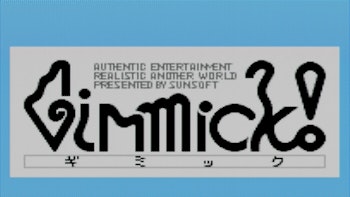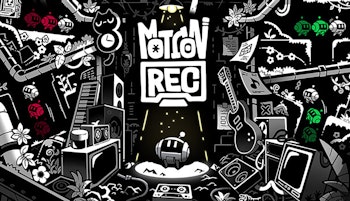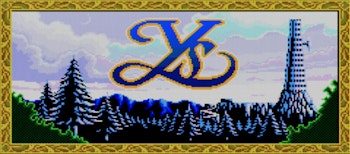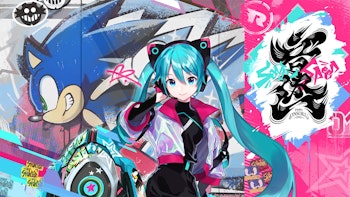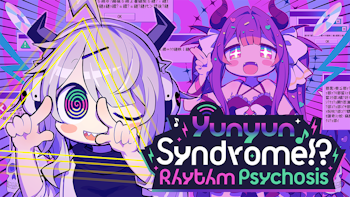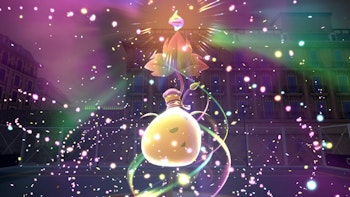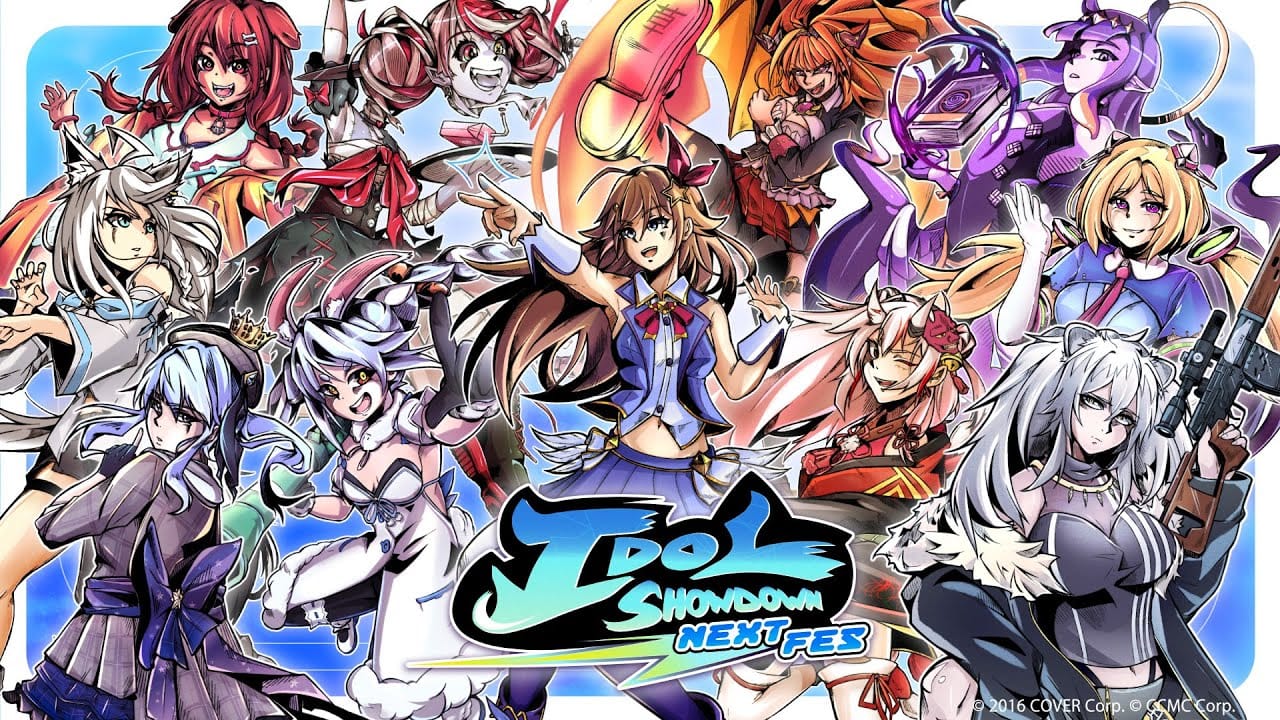
Holo Indie, since its inception in 2023, has published a lot of games. Roughly 30, all being told, an impressive and varied slate for a company yet to reach its second anniversary. It's hard to pick out a strict pattern to the genre or style of game the company wishes to support most prominently, either, with everything from pixel platformers to roguelikes to fighting games to parody titles under their umbrella. That's by design. Rather than serving as a traditional games publisher, Holo Indie is a support network for fan games and an opportunity for Cover to expand the awareness of Hololive talents beyond livestreaming, bringing their talents to life within the world of video games.
Naturally, as the company aims to raise their profile with smaller developers within the indie scene, the company chose to act as a publishing sponsor at this year's Bitsummit, the yearly indie game developer showcase in Kyoto, Japan and largest such event dedicated to the indie gaming scene in the country. The company made an appearance on the main stage for a panel discussing their games while also bringing a few titles such as Hololive Treasure Mountain to the event for Hololive fans and newcomers alike to play.
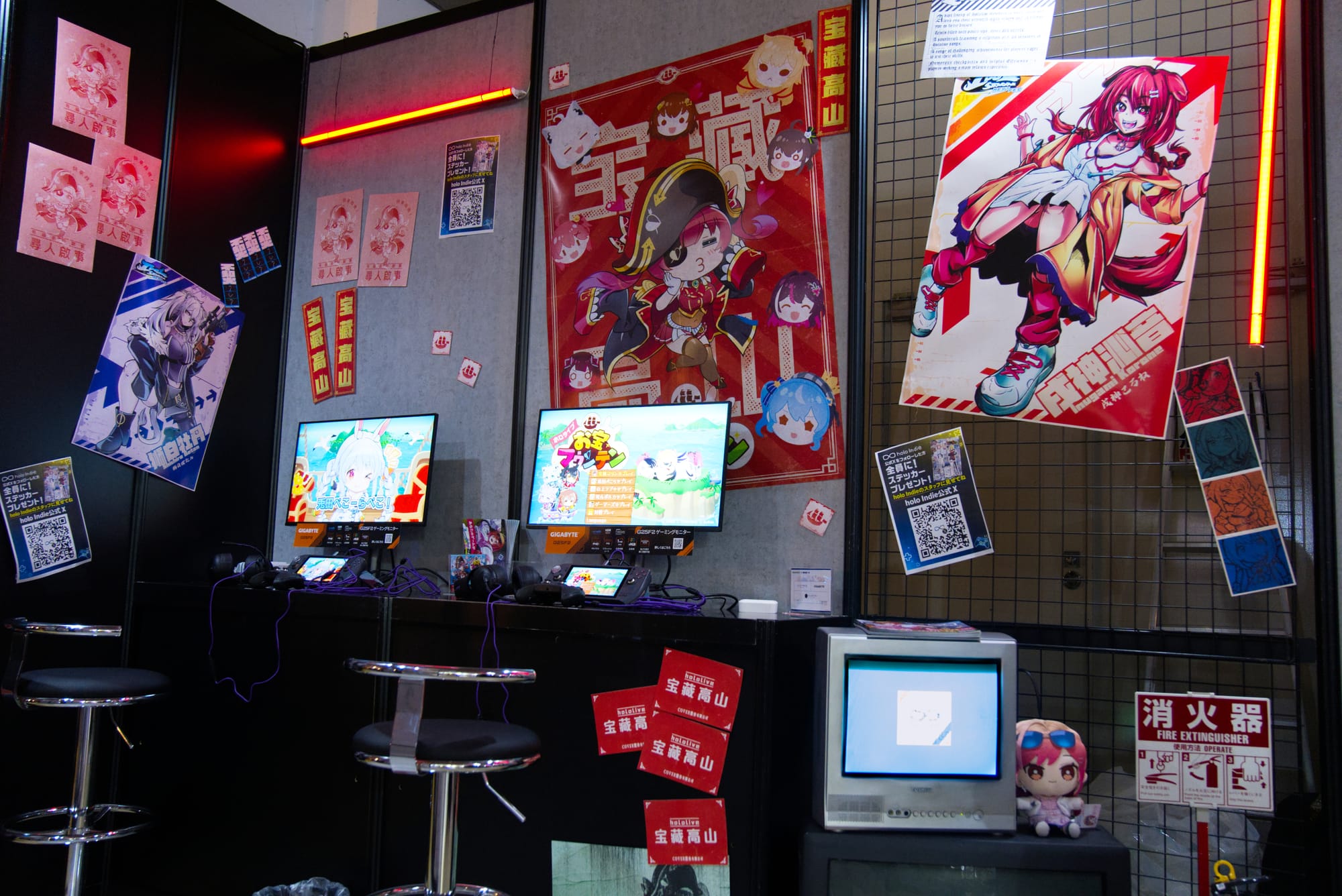
It was at their booth, adorned with cutouts of VTubers and a retro gaming vibe, that I met Yakayuki Hatano, Cover’s Manager of Game Business Marketing and UGC Marketing. According to him, the company’s move into games publishing was in reaction to the breakout viral success of Idol Showdown, a free 2D fighting game developed by Besto Games and released in May 2023 to huge viral success. The popularity of the game took the company by surprise. Not only were fans playing the game and sharing it on social media, even the talent featured in these games were playing these titles on stream. Websites like PCGamesN and Gamesradar were discussing the game, spreading awareness of the company and its talent to a new audience.
“Holo Indie exists to motivate creators and the community,” summarized Hatano. “The VTuber industry has become so big that just to support the activities of talents you have illustrators, programmers, music composers and others. That creative ecosystem alongside user-generated materials is at the heart of Cover. The thing is, while you can draw art and make music on your own, making a game requires more things to make it a reality, so Holo Indie was made to support that.
“[With HoloCure and Idol Showdown] not only were Hololive fans and talents playing these games, even general streamers were playing them. They helped us reach new people. If we had more games, not only would streamers have more games to play on stream, we can possibly reach even more people who could later become fans of Hololive. Without official support this could take a long time, so we wanted to help accelerate the process.”
Rather than Holo Indie seek out and recruiting indie creators to create titles based on their characters and IP, their aim was to support developers and hobbyists already working on fan games, aiding them in reaching a larger audience and using the investment offered by the publisher to hire the people needed to complete these games at an accelerated rate. What Idol Showdown brought to Hololive was something the company hadn’t seen before: a game that brought the world of VTubing into a new market, and introduced a whole new demographic to the company by attracting fans of the game to the featured streamers.
Empirically, the company could see how fan games could bring new games for streamers to play and a way for Hololive to command attention beyond their core fanbase. This was a method to replicate that success.
Cover recognized that talented developers were already making fan games that could capture the imaginations of players, but many were hobbyists without the time or resources to release them quickly. With most developing on a part-time basis alongside other commitments, it could take months or even years for a fan game to reach completion, and Cover wanted to speed up development and enable more viral moments like what they saw with Idol Showdown. With investment, these people could hire support or devote more time to development, allowing for more games to be released and find an audience with streamers and fans alike.
It wasn’t only money that Cover were bringing to the table with the establishment of Holo Indie. The company could also connect these developers with official resources or even the featured streamers and talents themselves. Fan games published by Holo Indie could work with the streamers to include voice lines and cameo appearances that would be impossible without the authorization of the company itself.
“While fan games don’t need our funding to be made, without our support they can’t get voice acting from the streamers. If they want to use music from Hololive, too, we’ll get that approved. Our policy [with Holo Indie] matches the policy we’d have with our producer relationship to a streamer. We might ask a creator what their goal is and what they want a game to be, and from that, we can support them to achieve that in whatever way is possible.”

Cover never previously prohibited the creation of games based on Hololive characters, though many such games were relegated to the halls of Comiket or online forums as opposed to the more widespread recognition these titles have been able to receive thanks to the recognition and collaboration offered through this initiative. From personal experience, I’ve wandered the halls of indie and doujin gaming events like Tokyo Game Dungeon or Digige Expo in Tokyo and stumbled across fan games of all different genres, from visual novels to shooters. A bustling scene for fan games existed before Holo Indie and would continue to exist without the publisher, but the aim is to allow it maintain independence while achieving things that weren’t possible before.
You can see this in the game’s funded. In one of their upcoming titles, Star Soraight Fantasy by Altoseal and Hoshikuzunoyoru, the game has the distinction of featuring an official 3D model for Tokino Sora as seen in her streams, a choice that was made both to match the game’s concept blending search action gameplay with idol music activities, and to speed up development. While stressing it was still an unusual decision and not common policy, Hateno viewed it in the way they view any decision in supporting the development of these games. “We wanted to decrease the workload, and so if it’s needed we thought we could maybe give them the asset!”
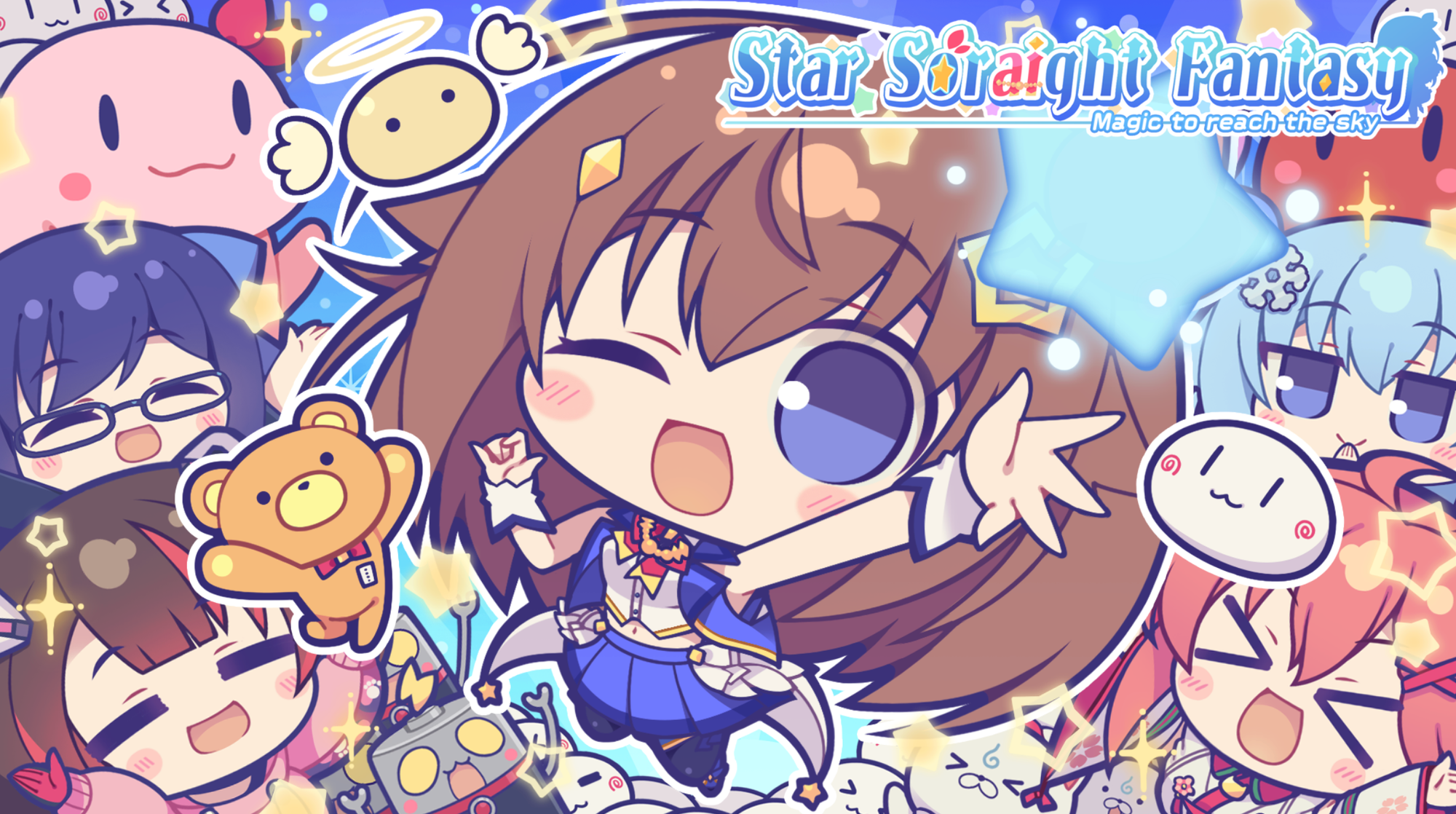
As things stand, the submission process is more like a pitch for funding than a typical publishing contract. After submitting a request for funding and a pitch for your game to Holo Indie, the company will select titles to invest in based on what they can offer, and if their funding can make a material difference on the final game. Submissions are also not limited solely to the Japanese market. Just like how Idol Showdown started as a project by Western fans, the team admitted that so far, while published titles show a roughly-even split between domestic and international developers working on Holo Indie projects, the proportion of submissions seeking Holo Indie funding skew towards Western creators.
Holo Indie should be viewed in relation to the company’s broader push towards a world where their talent are more than just streamers. While the company insisted to me that they aim to promote their talents and support them how they wish, the company more generally has been engaging in a grander push to make Cover more than just an agency for streamers but a multimedia talent agency for virtual stars. Beyond Holo Indie which uses the fan-driven label to be looser with the ways in which its characters are utilized, these games stand alongside the company’s larger company-driven collaborations with talent and larger developers on visual novels. Then you have the increased emphasis on cross-industry collaborations and investments.
Hololive have their own events and music concerts. Some of their talents, like Hoshimachi Suisei and Mori Calliope, are musicians in their own right, selling out concerts in venues as large as Saitama Super Arena or topping charts with viral hits and best-selling albums. The Hololive outreach to the Los Angeles Dodgers is just one high-profile example of ways the characters are promotional vehicles for brands around the world. Momosuzu Nene was a voice actor in the Kamen Rider collaboration movie for the series' Gotchard and Geats, and you have stars like Inagumi Korone involved in promotion for 28 Years Later via a viral interview with its director and scriptwriter.
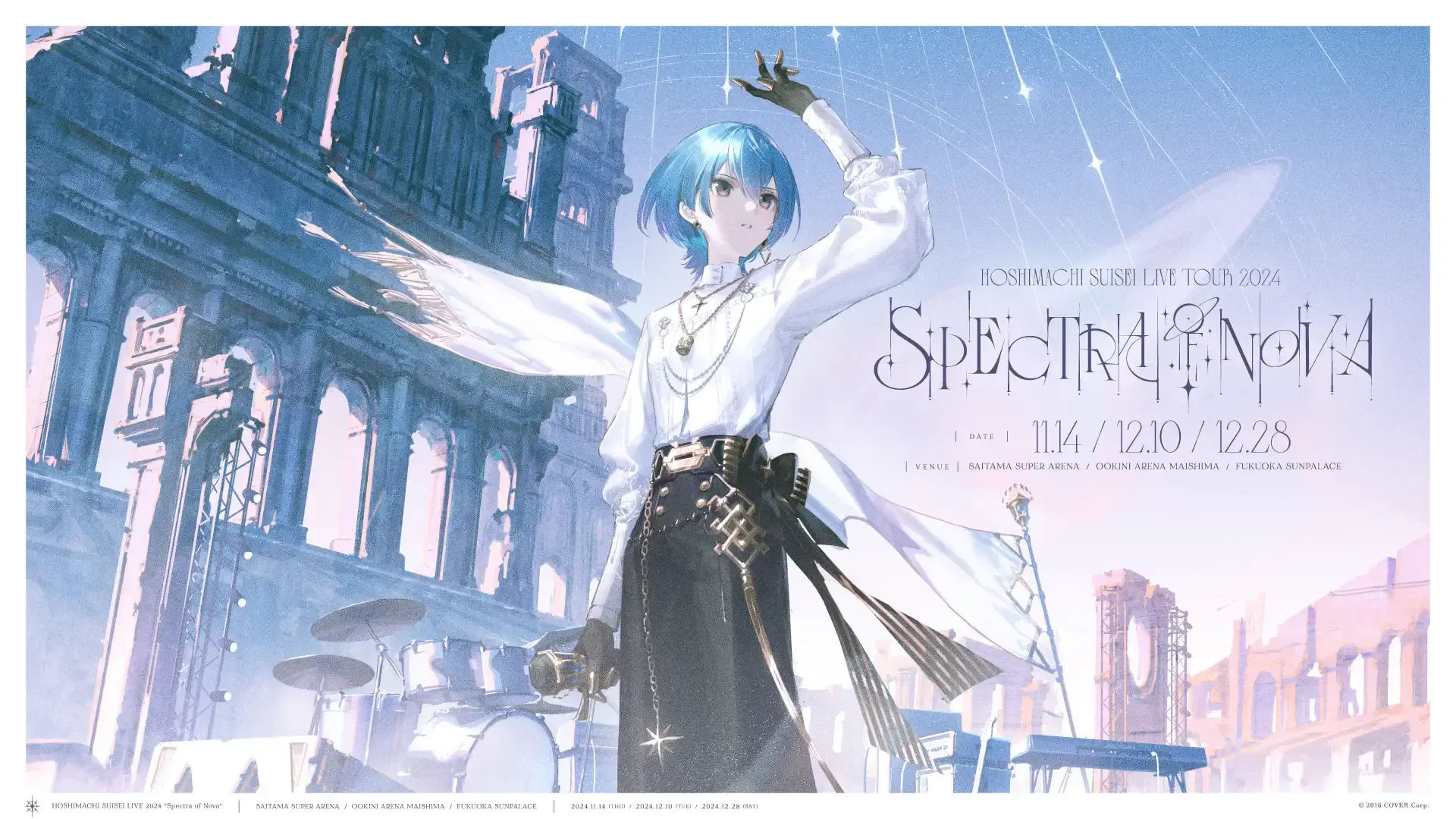
The point is, Hololive is more than VTubing now. It’s voice acting, it’s music, it’s virtual celebrity and, yes, it’s gaming. Holo Indie is a natural part of it, and combined these initiatives are all about increasing the profile of their talent and attracting more fans to their stars. Indeed, the team were open about the hope that, by appearing at an event like Bitsummit and sharing their games, they could attract new fans into Hololive.
“Holo Indie [within Cover] exists for pure games fans. We release these games on platforms like Steam, and alongside fans they can reach even younger generations, and maybe they can find streamers from there. We want to see more and more people developing games about Hololive and bring more and more fans to our talents, but most of all, we’d love to help support games that entertain people and for those people to enjoy it regardless of how much they know about our work. We want to also attract people who think, ‘oh, I didn’t know about Hololive, but I love this game’. Even if they don’t know Hololive, they love our games, and that love makes our talents and characters more well-known as a result.”
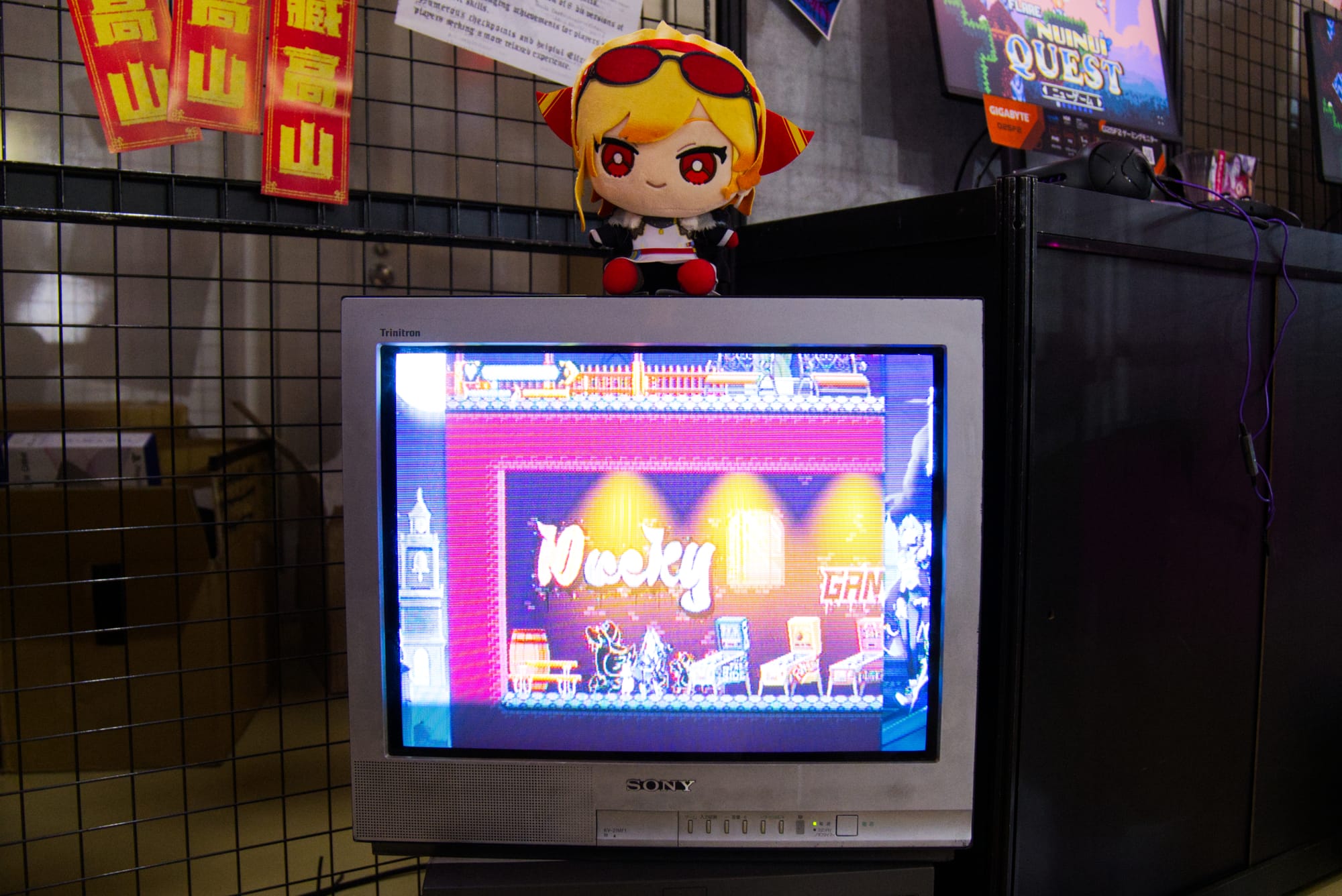
Holo Indie's goals can be condensed into three points. Through publishing and funding games, they are allowing fans to bring their doujin and indie games about Hololive characters to life, bringing more content to streamers to fans alike, and increasing the profile of their talent. But the one thing that struck me most as we brought our conversation to an end is that Holo Indie hopes to be much more than this. They're supporting the development of fan games by and for those fans, sure, but the hope is to bring a smile to anyone who plays their titles, regardless of their connection to anything else Cover does.
Gaming for Hololive, but also beyond Hololive. Above all else, Holo Indie is about bringing the spirit of Hololive to everyone through a new medium.
